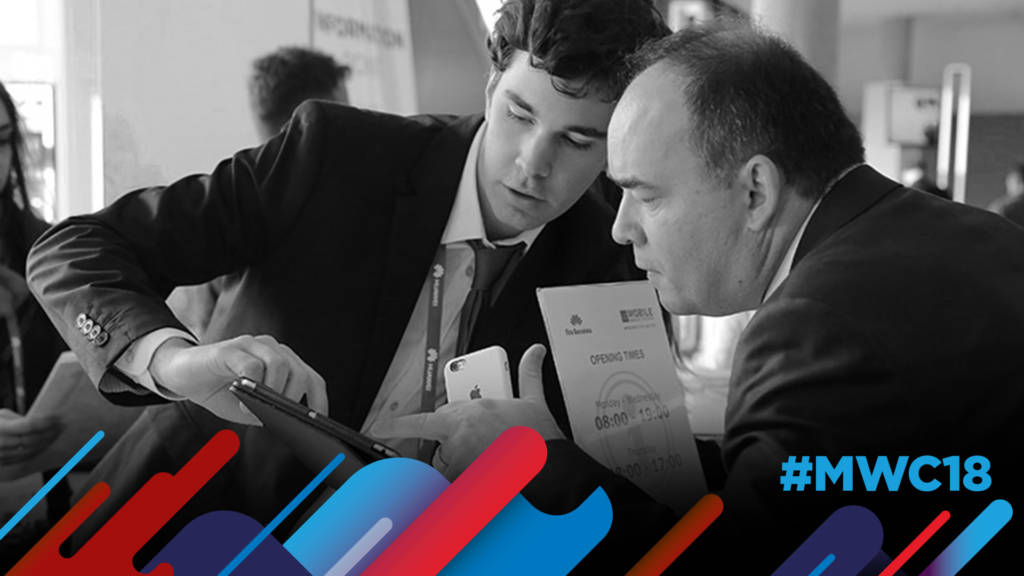Over 100,000 industry executives and 2,300 exhibitors are slated to attend Mobile World Congress (MWC), held this year from February 26 to March 1 in Barcelona. Marketers who go will have opportunities to experience new tech and meet the C-Suite of phone manufacturers—all while considering their brand’s vitality in the digital marketplace.
In addition to an array of announcements around smartphones, tablets and smartwatches and other areas of mobile, marketers can plan to get a better understanding around the maturation of artificial intelligence—like voice and machine learning—as well as digital transformation, AR, VR, IoT and 5G.
“This year will be about evolution, not revolution,” said Nitesh Patel, director of wireless media strategies for Strategy Analytics. “Marketers will see more demonstrations around 5G and IoT use-cases and discussion around business models as these technologies are a year closer to reality.”
As marketers look to unlock new levels of consumer engagement, advertising, media and marketing spend is gravitating more toward mobile-first campaigns and platforms and will likely continue on that path with the widespread roll-out of broadband networks.
Patel, an analyst who covers consumer mobile entertainment products and services, said MWC is designed for attendees to start new conversations and leave with fresh ideas to evolve their brands. This year, he anticipates marketers using the space to move more toward personalization as well as looking to provide strong value propositions for consumers.
“More important than any technology-based solution is how it can be deployed to address fundamental business challenges, which include improvements in efficiencies, delivering superior customer experience and strategic opportunities for revenue growth,” he said.
In addition to the ongoing rollout of 5G and wireless networks, marketers who attend MWC are also looking to learn about new opportunities to differentiate vis-à-vis competitors, not to mention which buzzwords will be in fashion over the next 12 months.
The early frontrunner for buzz-phrase of 2018 may very well be “sonic branding” because prognosticators are pointing to voice as the next emerging platform officially entering the vernacular and equation for marketers. At MWC, it is also one of the scheduled keynotes on the agenda.
Yet, as brands from all walks of life pour marketing resources into voice, Patel said it’s still the early days for the nascent space, and in the much bigger picture, we’re far from seeing it as a primary platform.
“As [voice] matures and becomes more widely adopted it shouldn’t be ignored,” he said. “For marketers, I’d position it as a mobile-first marketplace rather than mobile-only.”
Last year at MWC, the Interactive Advertising Bureau (IAB) was leading the conversation on surviving in mobile-only marketplaces in arenas including VR, AR, the connected home and tapping into AI for smarter marketing.
For the fourth consecutive year, the IAB and dmexco will continue talks around how to build a “mobile-always brand” in the 21st century. There will also be discussions later this month centering around cross-screen consumer engagement and new revenue streams that AI like voice and the connected home.
Beyond voice, Patel said that AR and VR innovations are still “rapidly emerging and maturing.”
Susan Welsh de Grimaldo, director of service provider strategies for Strategy Analytics, is expecting to continue seeing discussion around big data and machine learning at MWC as marketers look toward better targeting consumers and using data as a tool.
“The evolution of MWC will extend to data privacy issues and smart home solutions that are building a stronger platform for brand engagement and marketing to consumers,” she said.
Welsh de Grimaldo also sees the trend of the mobile operators opening up the ecosystem and business models to incorporate brands to seek market traction for offerings to consumers. An example of this is sponsored data and data rewards where users get free mobile data for engaging with brands.
“Content-based add-on bundles for mobile services are ways that brands and marketers can further work with operators and engage their target customers on the device they use the most—the smartphone,” she said.

